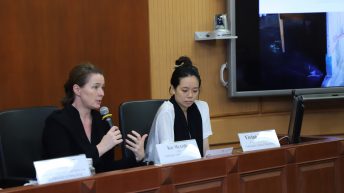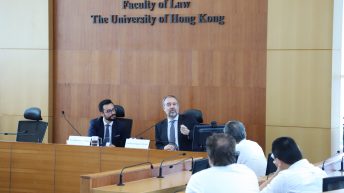Date: 20Sep 2017
The New Dominion Constitutional Framework: Lessons from Pakistan
Dr. Mara Malagodi, Senior Lecturer in Law, City Law School, University of London
New Dominion constitutionalism represents a crucial but understudied critical juncture for decolonizing nations at the twilight of the British Empire – and a key institutional antecedent to later, better known constitutional transitions. Drawing from the ideas and practices of the Old Settler Dominions and the ‘Bridge Dominion’ of Ireland, New Dominion constitutionalism offered an interim frame of government for political transitions in India (1947-1950), Pakistan (1947-1956), and Sri Lanka (1948-1972). Both transitional and transnational, New Dominionhood was a modality of decolonisation by constitutional means and a template for establishing the legal basis for constituting the fully independent states. This paper focuses on the litigation over the dissolution of Pakistan’s first Constituent Assembly to illustrate the critical long-term impact of Dominion status on Pakistan’s rise and configuration of authoritarian constitutionalism.
Dr Mara Malagodi is a Senior Lecturer in Law at The City Law School, University of London. Mara is a comparative constitutional lawyer with a linguistically-informed specialism in South Asian law and politics, human rights law, legal history, and law & film. She is the author of the monograph Constitutional Nationalism and Legal Exclusion in Nepal (2013 OUP) and numerous articles and book chapters on constitutional law and history.
Uncertain Sovereignty: Ceylon as a Dominion (1948-72) Rehan Abeyratne, Assistant Professor of Law, Chinese University of Hong Kong
This talk focuses on sovereignty in Ceylon’s (Sri Lanka’s) Dominion period (1948-72), specifically on Ceylon Supreme Court and Privy Council judgments on both rights-based and structural questions of constitutional law. In each area, sovereignty-related concerns influenced the judicial approach and case outcomes. On fundamental rights, both the Supreme Court and Privy Council adopted a cautious approach, declining to invalidate legislation that had discriminatory effects on minority communities. This reluctance to entrench fundamental rights resulted, at least in part, from judges’ undue deference to the Ceylon Parliament, which was wrongly looked upon like its all-powerful British progenitor. On constitutional structure, the Ceylon Supreme Court deferred to Parliament even when legislation encroached on the judicial realm. The Privy Council, though, upheld a separate, inviolable judicial power that Parliament could not legislate away. But by asserting itself as a check on legislative power, the Council – as a foreign judicial body intervening in Ceylonese affairs – stoked concerns that Ceylon was less than fully sovereign, which ultimately ended Dominion status.
Rehan Abeyratne is an Assistant Professor of Law at The Chinese University of Hong Kong. His research interests include comparative constitutional law, human rights, and public international law. Prior to joining CUHK, Professor Abeyratne was a Scholar in Residence at the Center for Human Rights and Global Justice at the New York University School of Law. From 2011-16, Professor Abeyratne was an Associate Professor of Law at the Jindal Global Law School in Delhi, India.




